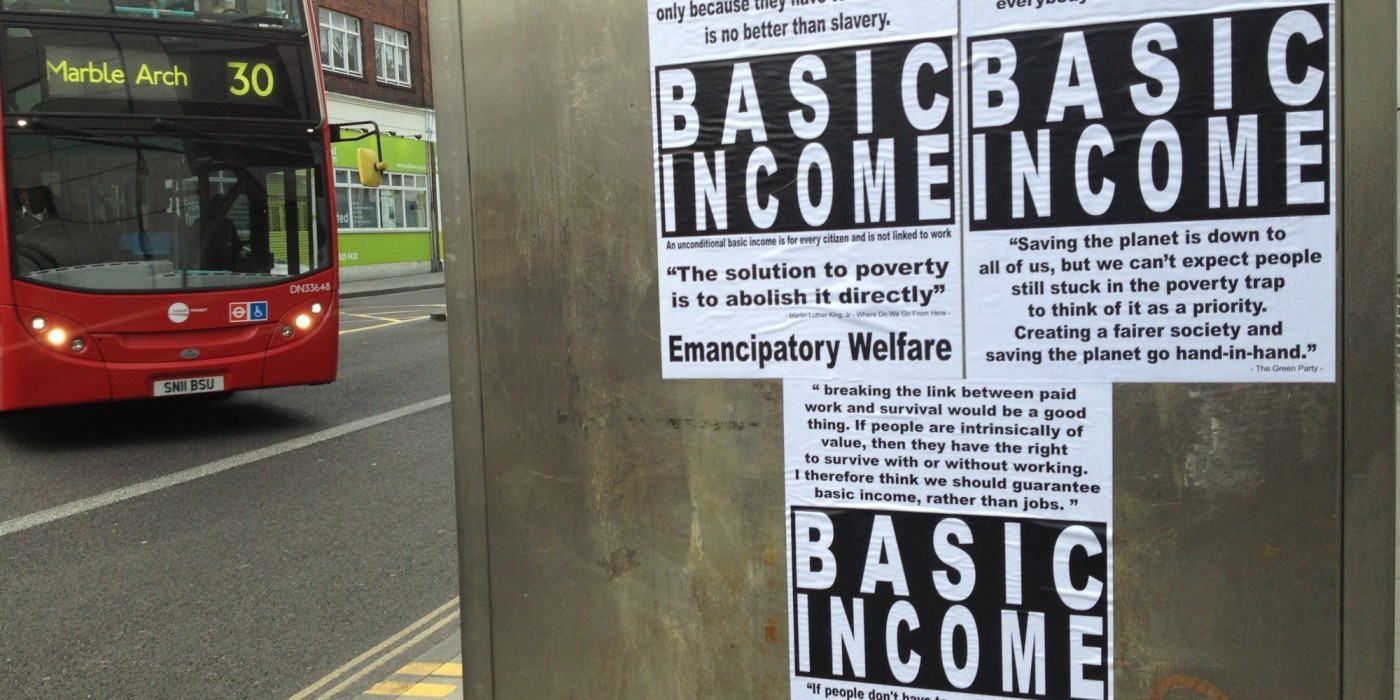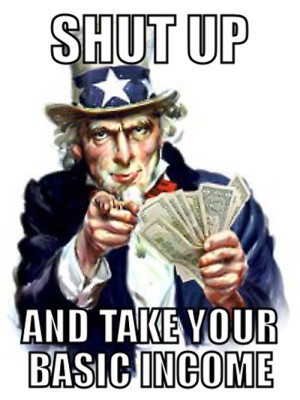Unconditional income is effective, even if 90% of people become idle

The main argument against the unconditional basic income is that people will lose their incentive to work. They say that people who are lazy by nature will be idle, eating and drank social benefits. And therefore, allegedly, the social unconditional basic income will not bring that effect for the economy and the welfare of society, about which adherents of the idea speak.
Well-known entrepreneur and programmer, President of Y Combinator and venture capitalist Sam Altman do not agree with this thesis. He expressed his point of view in the latest issue of the Freakonomics podcast entitled “Is the World Ready for Unconditional Basic Income?”
')
“Maybe 90% will smoke weed and play video games,” says Altman. “But if the remaining 10% starts creating incredible new products and services, creating new values, it will still result in a huge gain [compared to the current state of affairs].”
The entrepreneur means that nowadays many people are forced to engage in an unloved affair simply in order to feed themselves and their families. If you provide a person with an unconditional basic income, then he will find a much better use of his forces and abilities. Even if it works for 10% of the population, the economy will still be in the black.
“The Puritan American ideal, that hard work has value in itself — a point — and that this is not discussed, I think, is simply wrong,” says Altman.
In the US, hard work is really elevated to a cult. Extra hours (overtime) are taken to work in this country, 50-60 hours a week and on weekends - and people are sincerely proud of it. In the American legislation there is no obligatory right to labor leave, this privilege is free to be established by the employer at its discretion. Many work for years without vacations - and again they are proud of it. According to statistics, only 25% of Americans fully use paid vacation each year.
 Recently, the idea that the cult of workaholism is the wrong idea has become increasingly common. If you give people social benefits and allow them to do what your heart desires - even if you play computer games - it will bring more benefits to the economy and society.
Recently, the idea that the cult of workaholism is the wrong idea has become increasingly common. If you give people social benefits and allow them to do what your heart desires - even if you play computer games - it will bring more benefits to the economy and society.The idea of the unconditional basic income (BOD) as a radical form of social dividends was formulated by Thomas Payne as early as 1795, she was remembered at the end of the 20th century, but she became really popular about a year ago. Recently, several countries have announced experiments with the AML. Switzerland will hold a referendum on unconditional basic income in June 2016. Experiments with social dividends in 2016-2017 are planned by the Netherlands , Finland and Canada . Soon, New Zealand and the USA may follow their example.
The initiative to promote this economic model in the United States is headed by Sam Altman. It is quite logical, because its incubator Y Combinator starts in approximately the same model. Entrepreneurs receive money without any obligations in exchange for 7% of the shares - they can develop their business as they wish. This is how Airbnb, Reddit, Dropbox and many other companies that came through Y Combinator appeared. The total capitalization of the Y Combinator companies exceeds $ 65 billion.
In January 2016, Altman in his blog described a plan of his own experiment with an unconditional basic income. He said that the experiment will last five years and a group of Americans will participate in it. True, the start time of the experiment is not called, as well as the amount of benefits issued.
Altman is not alone in his opinion. More and more new research shows that people who receive guaranteed payments feel financially secure - and in most cases this leads to increased opportunities and increased productivity, rather than acting as a demotivator.
That is why Altman is so confident in his position. Even if 90% of people become idle, then for 10% the unconditional basic income is such a strong motivator that they use the free time that has appeared for extraordinary innovations, which will more than pay for idleness for 90% of the rest of the citizens.
Even with the worst scenario, an unconditional basic income will bring results.
But the beauty of AML is, says Altman, that this 90% will not . All studies show: financial stability in reality pushes people to work more .
Source: https://habr.com/ru/post/393437/
All Articles